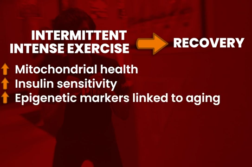SALT LAKE CITY, Utah (Ivanhoe Newswire) – In a medical breakthrough that could change the lives of some heart patients, doctors have performed a groundbreaking procedure using radiation therapy, typically reserved for cancer treatment, to cure a life-threatening heart condition. Cancer killer
Shannon Brooks’ heart issues began with a heart attack at age 37. A defibrillator and ablation procedure kept his heart going strong for another 18 years. But at 55 years old, Brooks went into cardiac arrest.
“Definitely almost lost his life a few times there with this, with his heart. They knew that they needed to do the ablation, but they were so worried about how weak his heart was,” Brooks’ wife, Jen recalls.
Radiation oncologist at Intermountain Health, Grant Hunter, MD explains, “By the time they’re having this problem, refractory ventricular tachycardia, they’ve been through all the standard treatments and they don’t have a lot of options.”
The only option Brooks appeared to have was a heart transplant, but Dr. Hunter had another option – a procedure so new that Brooks would only be the second patient in Utah to get it – stereotactic radiotherapy is a standard cancer treatment, but a new option for treating his heart arrhythmia.
“We can do it in a non-invasive way. They just come to an out-patient facility, they sit in a chair for 15 minutes, they get the therapy, they get up, they walk out,” explains Michael Cutler, MD at Intermountain Health.
Brooks went home that same day, grateful and amazed that such a quick and painless procedure spared him from invasive surgery and the long, painful recovery that would’ve come with a heart transplant.
“I think what it’s really done is give me confidence to be able to be okay and know that I’m okay,” Brooks says with relief.
Brooks said before the 15 minute procedure was even over, he was already starting to feel better. And another great advantage to the stereotactic radiation procedure is that there are few, if any, short-term side effects. Because it is so new, there is no data to show what will happen long term. To find out, researchers will be following patients like brooks for many years to come.
Contributors to this news report include: Jessica Sanchez, Producer; Kirk Manson, Videographer; Sharon Dennis, Editor.
To receive a free weekly e-mail on medical breakthroughs from Ivanhoe, sign up at: http://www.ivanhoe.com/ftk
Source:
https://pubmed.ncbi.nlm.nih.gov/34587335/
MEDICAL BREAKTHROUGHS
RESEARCH SUMMARY
TOPIC: CANCER KILLER NOW SAVING HEARTS
REPORT: MB #5331
BACKGROUND: Every 40 seconds, someone has a heart attack in the United States. A heart attack, also known as a myocardial infarction, occurs when the blood flow to a part of the heart muscle is blocked. This blockage can be caused by a buildup of fatty deposits (plaque) in the coronary arteries, which supply blood to the heart muscle. When the blood flow is restricted or blocked, the affected part of the heart muscle can be damaged or die. Over 800,000 Americans suffer from a heart attack every year, and one out of five heart attacks are silent. Men over the age of 45 and women over the age of 55, smokers, people with high blood pressure, high cholesterol, or diabetes, obese people, and people who live with significant stress, have an increased risk of suffering from a heart attack.
(Sources: https://www.mayoclinic.org/diseases-conditions/heart-attack/symptoms-causes/syc-20373106
DIAGNOSING: Symptoms of a heart attack include, but are not limited to: chest pain or tightness in chest, pain that spreads to other parts of the body, cold sweats, fatigue, heart burn or indigestion, lightheadedness or dizziness, nausea, and/or shortness of breath. Doctors can diagnose a heart attack with a multitude of tests, including: an ECG or EKG, blood tests, a chest X-ray, an echocardiogram, an angiogram, a CT scan, or an MRI. Common causes of a heart attack are blockages of arteries, coronary artery spasms, infections, and spontaneous coronary artery dissection, or SCAD.
(Sources: https://www.mayoclinic.org/diseases-conditions/heart-attack/symptoms-causes/syc-20373106
https://www.mayoclinic.org/diseases-conditions/heart-attack/diagnosis-treatment/drc-20373112)
NEW TECHNOLOGY: Typical treatments for a heart attack are medications like aspirin, clot busters, blood thinning medicines, nitroglycerin, morphine, Beta blockers, ACE inhibitors, and/or statins. Heart attacks can also be treated with surgical procedures like stenting or CABG. It’s been recently discovered that a known cancer treatment can treat some heart attacks. “Stereotactic radiotherapy is typically performed on cancer patients. However, it has successfully been used on a small number of patients after other cardiac procedures failed to correct their heart arrythmia.”
(Sources: https://www.mayoclinic.org/diseases-conditions/heart-attack/diagnosis-treatment/drc-20373112
FOR MORE INFORMATION ON THIS REPORT, PLEASE CONTACT:
Erin Goff
If this story or any other Ivanhoe story has impacted your life or prompted you or someone you know to seek or change treatments, please let us know by contacting Marjorie Bekaert Thomas at mthomas@ivanhoe.com




